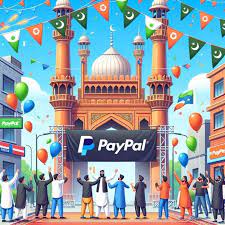In a recent statement by Pakistan's caretaker IT Minister Umar Saif, there were claims about PayPal starting operations in the country through a partnership with Payoneer. However, the reality contradicts these statements. The partnership, as confirmed by reliable sources, does not imply that PayPal will commence operations in Pakistan.
Minister's Claim vs. Reality
While the minister announced that PayPal would operate indirectly through Payoneer, it turns out that the partnership is primarily focused on adding PayPal as a payment method for Payoneer users. This clarification is essential to provide a clear understanding of the situation.
Partnership Details
Payoneer's collaboration with PayPal allows users, particularly in countries like the US, to make payments to freelancers in Pakistan through Payoneer using PayPal as a payment method, similar to using debit or credit cards.
User Perspective
Unfortunately, for Pakistani users, the partnership does not eliminate the existing restrictions on creating a PayPal account directly from Pakistan. The ability to open an account remains limited to individuals from certain countries like the UK or the US.
Partnership Scope
It's crucial to emphasize that this partnership is not exclusive to Pakistan; it spans across all geographies where Payoneer operates. Any misconception regarding its exclusivity to Pakistan may prove counterproductive for the country's efforts to bring in PayPal.
Freelancer Demand and Government's Efforts
Pakistan, being a rapidly growing market for freelancers, has witnessed a consistent demand for PayPal services. The government, including the efforts of Umar Saif, had previously expressed intentions to bring both PayPal and Stripe to the country to cater to freelancers' payment needs.
Lack of Progress and Identified Obstacles
Despite promises made by the caretaker minister in the past, there has been no substantial progress. A study by the Pakistan Institute of Development Economics (PIDE) sheds light on various obstacles hindering PayPal's entry. These include perceived restrictions associated with the electronic money institutions (EMIs) licensing regime, concerns about money laundering, and restrictions imposed by the FATF.
Exchange Control and Data Privacy
Among the identified obstacles, exchange control regulations and data privacy concerns play a significant role in preventing PayPal from operating in Pakistan. These challenges need to be addressed to pave the way for PayPal's entry into the country.
Conclusion
In conclusion, the recent statement by the IT Minister regarding PayPal's operations in Pakistan needs clarification. The partnership with Payoneer does not signify PayPal's direct or indirect entry into Pakistan. The existing restrictions on creating PayPal accounts from Pakistan persist, posing challenges for freelancers and hindering the government's efforts to bring in global payment service providers.
Frequently Asked Questions (FAQs)
Q: Can Pakistani users now open a PayPal account through Payoneer?
- A: No, the partnership between Payoneer and PayPal does not enable Pakistani users to directly open a PayPal account.
Q: What impact does this partnership have on freelancers in Pakistan?
- A: Freelancers in Pakistan can receive payments via PayPal through Payoneer, but they still cannot create PayPal accounts directly.
Q: Why is Pakistan facing challenges in bringing PayPal to the country?
- A: Obstacles include perceived restrictions in the licensing regime, concerns about money laundering, and restrictions imposed by the FATF.
Q: Are there any specific countries benefiting from the Payoneer and PayPal partnership?
- A: The partnership extends globally, allowing users from various countries, not limited to Pakistan, to use PayPal through Payoneer.
Q: What efforts has the government made to bring PayPal to Pakistan?
- A: The government, including IT Minister Umar Saif, expressed intentions, but there has been limited progress in the actual implementation.






